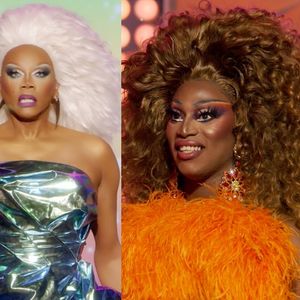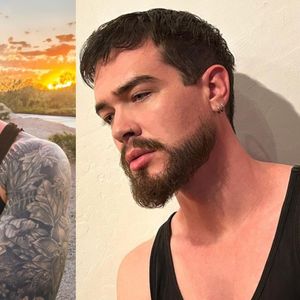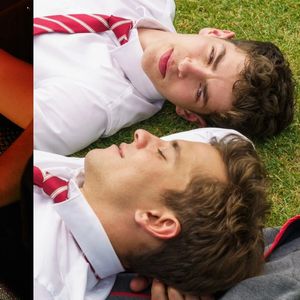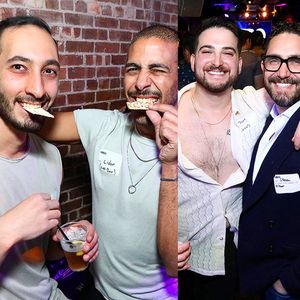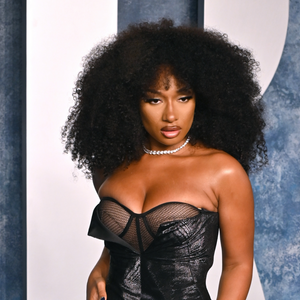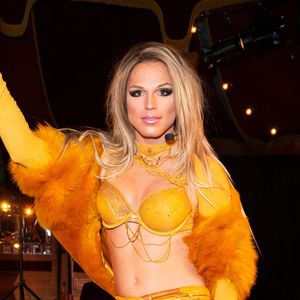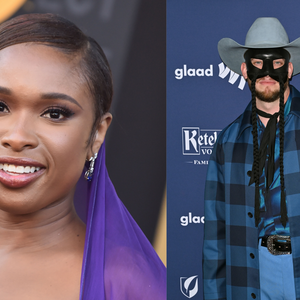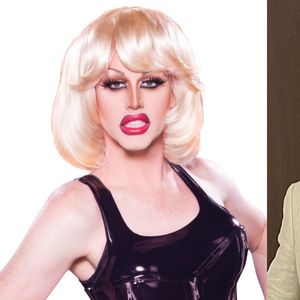
CONTACTStaffCAREER OPPORTUNITIESADVERTISE WITH USPRIVACY POLICYPRIVACY PREFERENCESTERMS OF USELEGAL NOTICE
© 2024 Pride Publishing Inc.
All Rights reserved
All Rights reserved
By continuing to use our site, you agree to our Private Policy and Terms of Use.
We may be "a gentle, angry people," as Holly Near once sang, but we won't be fully free until we also wield weapons righteously. For better or worse, virtuous aggression is the signifier of heroism in our culture. This is a myth of valor we are denied.
I had high hopes for Oliver Stone's Alexander. How groundbreaking it would be to portray a world conqueror as the other-than-hetero man he was! But Stone has never created a robust gay character, and his Alexander was a neurotic mess. He wasn't queer because same-sex love was honorable in his time but because he suffered from mother horror and father fixation--a good candidate for reparative therapy.
Few things are riskier in Hollywood than showing queers who are capable of aggression that isn't motivated by pathology. It evokes the most primal nightmare straight men have about us--that we're out to rape them. More than any religious dogma, this violation fantasy is what keeps us down.
The rape phobia rears up in Richard Greenberg's play Take Me Out, when a queer baseball player accosts a naked homophobic teammate in the shower. The difference between that play and Alexander is the difference between self-assertion and anxiety. In queer characters, assertion is still forbidden; anxiety is routine.
There are some notable exceptions, such as Hilary Swank's stunning performance as Brandon Teena in Boys Don't Cry. But that was a complex adult drama. I've yet to see a genre movie in which a gay man plays a paladin protecting the innocent, like the Rock. Nor is there a lesbian version of the vengeance-wreaking Uma Thurman character in the Kill Bill movies. Only on the LGBT festival circuit will you find such a bride.
Why are there no queer top-gunners? Why do we never get to mow down the enemies of freedom? Why are we not even shown walking large dogs? Because of heteros' fear of the phallic queer, the homo who can love and fight. (This capacity isn't reserved for males--you don't need a penis to be phallic.)
Mind you, there are plenty of feisty, conniving gays on reality TV, epitomized by Survivor's Richard Hatch. But in most reality shows the deadliest homo sins are arch superficiality, an addiction to face creams, and a deep need for hugs from straight guys.
Some complex queer characters appear on pay cable, where sexuality and its discontents can be fully explored. Deadwood's Calamity Jane had the makings of a phallic queer--until she got domesticated. Realistic? Perhaps. Mythic? No way.
In enlightened movies we're allowed to be complicated--but not valiant. And old stereotypes persist. Take Capote. There's something awfully trad about a treacherous, narcissistic fairy ending up lonely. I know it's a true story, but why this true story?
When it comes to queer men, the latest movie trend is to have them cheating on their wives: Think Far From Heaven, De-Lovely, Kinsey, and Brokeback Mountain. This fixation on infidelity reveals another anxiety about us. Call it a feminine variation on the male-rape fantasy: We're seductive but slippery, like a Venus flytrap. Why is it permissible to show gay relationships in an adulterous context but not in a heroic one?
We pay a price for this omission. It reinforces the belief that we can't defend ourselves. When we internalize that message, we become the fairies we are meant to be. Straight men can rest easy; the phallic queer remains repressed. n
Want more breaking equality news & trending entertainment stories?
Check out our NEW 24/7 streaming service: the Advocate Channel!
Download the Advocate Channel App for your mobile phone and your favorite streaming device!
From our Sponsors
Most Popular
Here Are Our 2024 Election Predictions. Will They Come True?
November 07 2023 1:46 PM
Meet all 37 of the queer women in this season's WNBA
April 17 2024 11:24 AM
17 Celebs Who Are Out & Proud of Their Trans & Nonbinary Kids
November 30 2023 10:41 AM
Here Are the 15 Most LGBTQ-Friendly Cities in the U.S.
November 01 2023 5:09 PM
Which State Is the Queerest? These Are the States With the Most LGBTQ+ People
December 11 2023 10:00 AM
These 27 Senate Hearing Room Gay Sex Jokes Are Truly Exquisite
December 17 2023 3:33 PM
10 Cheeky and Homoerotic Photos From Bob Mizer's Nude Films
November 18 2023 10:05 PM
42 Flaming Hot Photos From 2024's Australian Firefighters Calendar
November 10 2023 6:08 PM
These Are the 5 States With the Smallest Percentage of LGBTQ+ People
December 13 2023 9:15 AM
Here are the 15 gayest travel destinations in the world: report
March 26 2024 9:23 AM
Watch Now: The Daily
Trending stories from our video partner Advocate Channel.
For more videos and shows go to advocatechannel.com.
Trending stories from our video partner Advocate Channel.
For more videos and shows go to advocatechannel.com.
Latest Stories
Over 90% of trans youth live in states pushing anti-trans legislation: report
April 23 2024 10:08 PM
George Santos pulls out of New York congressional race
April 23 2024 7:04 PM
Biden will hammer Trump over abortion bans in Florida speech
April 23 2024 5:00 AM
Tristan Snell, who brought down Trump University, sees conviction in hush money case
April 22 2024 7:36 PM
Joe Biden admin marks Earth Day with major environmental initiatives
April 22 2024 4:18 PM
Texas Gov. Greg Abbott: 'We want to end' trans and gender nonconforming teachers
April 22 2024 4:13 PM
Nonbinary 17-year-old killed two years after being reported missing
April 22 2024 3:46 PM































































